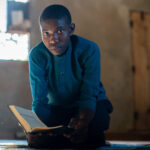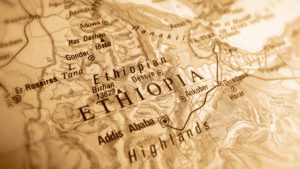Unlike secular materialism, African traditional religion shares with Christians a belief in the spirit world. We Africans understand instinctively the stories of angelic visitations, spiritual warfare, and demonic oppression that are in the Bible. However, major differences exist between the biblical and traditional African understanding of angels and demons.
Angels and Demons in the Bible
God created “the things we can see and the things we can’t see” (Colossians 1:16), including the angels. Angels, meaning messengers, are spiritual beings. While they do not have bodies like humans, they are distinct persons. Some such as Michael and Gabriel are known by name. The “angel of the Lord” seems to have been an appearance of Christ before his incarnation (Genesis 32:24-30; Daniel 3:25).
Africans understand instinctively the stories of angelic visitations, spiritual warfare, and demonic oppression in the Bible
While the holy angels are faithful through all eternity, Satan and other angels rebelled (2 Peter 2:4; Jude 1:6; Revelation 12:4, 7). These rebellious beings will be thrown into the fiery lake of burning sulphur at the judgement (Revelation 20:10). Fallen spirits, unlike angels, seek for a body to inhabit (Matthew 8:31). Hence, the devil uses people in order to perform evil.
Demons are rarely mentioned in the Old Testament, although there are mention of spirits that are associated with pagan deities. The New Testament speaks of spirits that distort truth and are part of idol worship (1 Timothy 4:1). It also describes demons inhabiting people (Mark 5:1-20). Jesus shows his power over the realm of Satan when he casts out and defeats the power of demons.
3 Differences: Spiritual Beings in African Traditional Religion vs. Christianity
There are 3 major differences between the biblical and traditional African understanding of angels and demons.
1. The Connection of Angels to the Earthly World
First of all, angels in the Bible are part of an independent heavenly world created by God. Even though it is not spelled out in detail in Scripture, this is a world of praise and worship (Isaiah 6:1-4; Revelation 4–5). The African traditional view of spirits, in contrast, believes spirits are intimately connected with this earthly world; in particular the lives of the ancestors.
2. Who is in Control
Second, biblical angels and demons are all subject to God’s sovereign will. God may permit believers to be tested by Satan. Yet God will never allow us to be tempted beyond what we are able to stand (1 Corinthians 10:13; James 1:13-14). Satan exercises great influence in the world (Ephesians 2:2; 1 John 5:19), but Christ has given us victory (Ephesians 2:3-7; 1 John 4:3-4).
Biblical angels and demons are all subject to God’s sovereign will
African traditional views of spirits, on the other hand, are often reflections of human troubles and needs. They often exhibit mixed character and are capable of being appeased by proper rituals prescribed by spiritual specialists. There is no equivalent in African traditional religion of a single “prince of demons” (Matthew 12:24), who opposes God and directs all other demonic forces.
3. Who They Serve
Finally, in Scripture, angels are sent forth to serve God’s greater purposes. This includes announcing great events to God’s people (Daniel 3:28; Luke 1:19). Humans do not invoke angels directly. Rather, God may send them to help believers when we call on him (Matthew 26:53; Hebrews 1:14).
African traditional religion lacks this overarching goal of help and salvation. Its spirits serve much more ordinary purposes. Biblical angels, by contrast, offer hope in the midst of suffering and serve and worship into eternity. That is why Uganda martyrs could sing this hymn as they died in the fire:
In the midst of that dear City, Christ is reigning on his seat,
And the angels swing their censers in a ring about his feet.
O that I had wings of angels, here to spread, and heavenward fly!
I would seek the gates of Zion, far beyond the starry sky.















